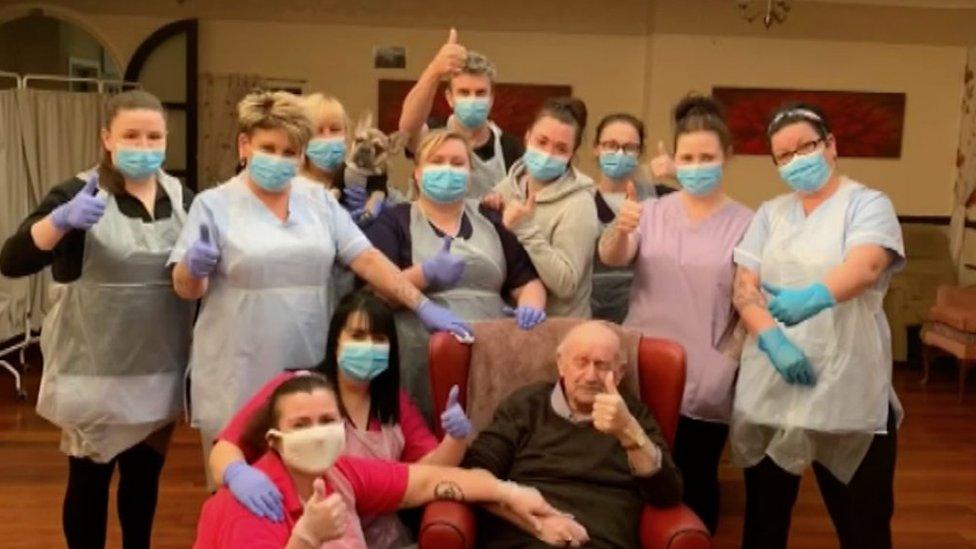Coronavirus: How do we protect care homes as lockdown eases?
- Published
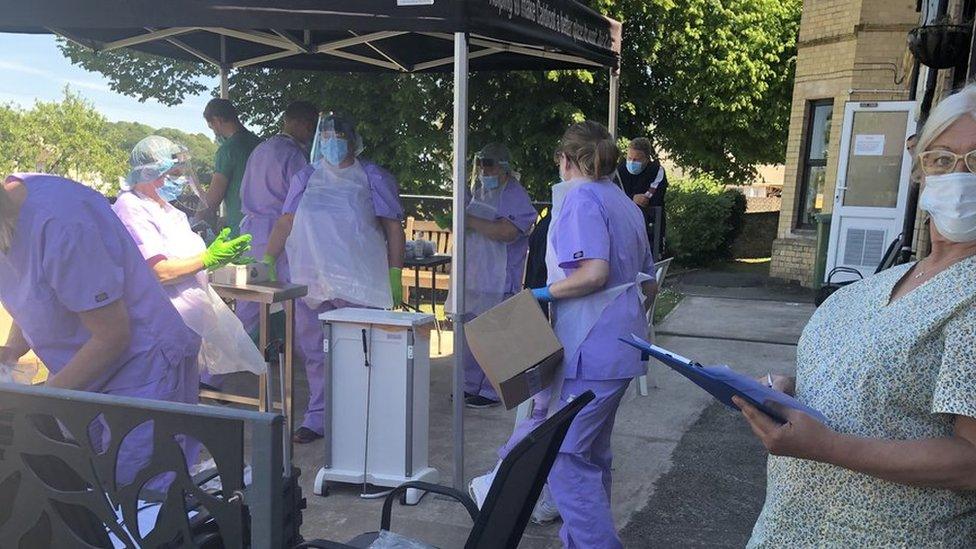
Public Health Wales, supported by the Army, spent two hours swabbing everyone at Claremont Court Care Home in Newport this month
Deaths in care homes this spring were almost double what they were last year, the care regulator has said.
Care Inspectorate Wales said more than 620 of them were linked to coronavirus.
The number of deaths has now fallen back to levels similar to 2018 and 2019.
But with new Covid-19 cases still being reported daily, more outbreaks are "inevitable", said Sanjiv Joshi, director of the Caron Group, which has 14 homes in south Wales.
Most of the group's homes avoided the virus, but in one he said it "spread like wildfire".
"Eventually I think we had 12 or 13 Covid-related deaths and other deaths as well," he said.
The question now is how to avoid another catastrophe, especially as the rest of society prepares for the easing of lockdown.
Early on, some care homes struggled to buy protective equipment (PPE).
But now regular supplies are coming through and the Welsh Government says 40 million pieces of free equipment have been distributed.
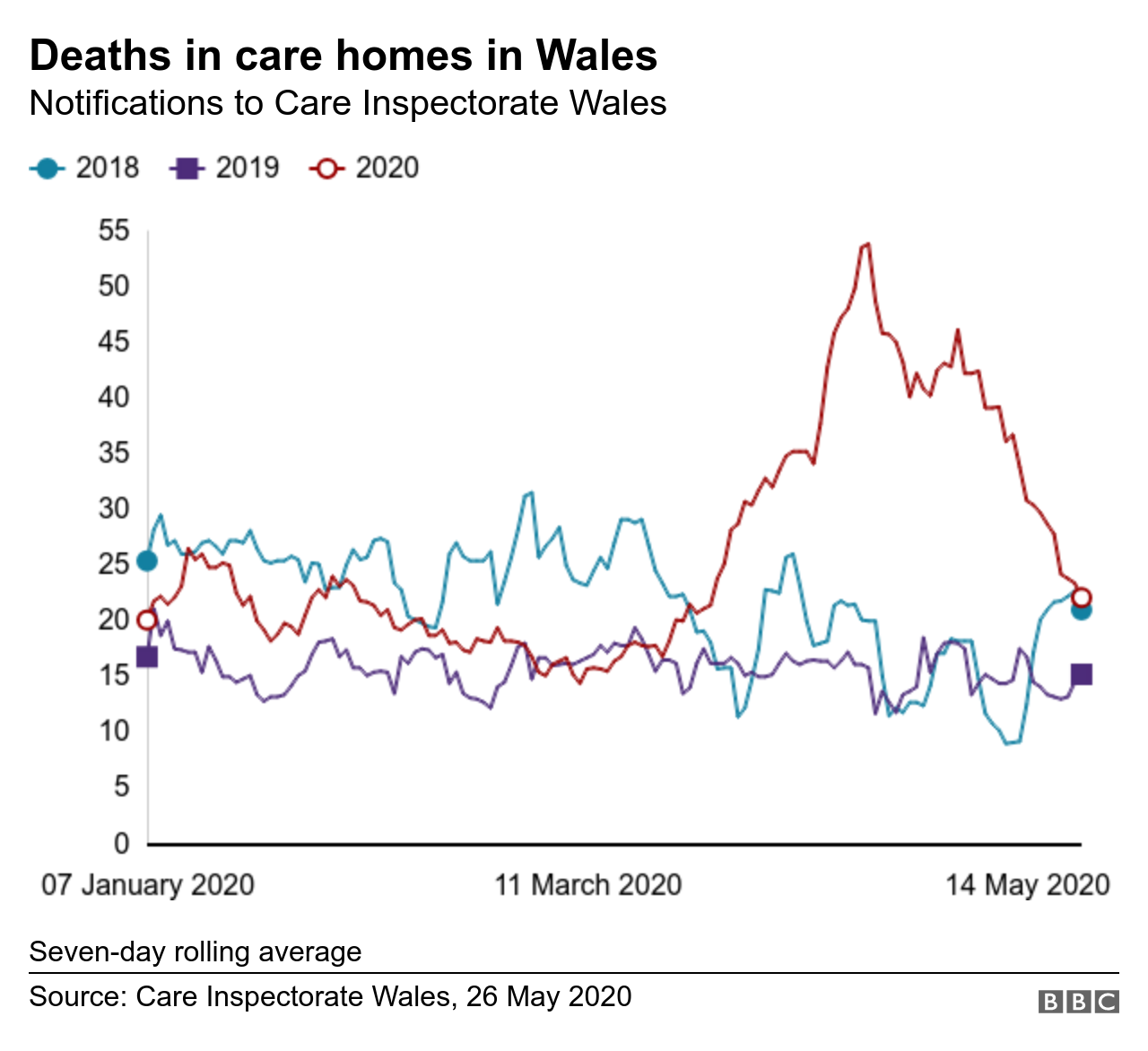
The testing regime has evolved too.
Two weeks ago, it was announced that all care home staff and residents would be swabbed.
But did it come too late?
Older People's Commissioner Helena Herklots, worries it should have happened sooner because of the risk that people were passing on the virus even if they themselves did not have symptoms.
"We do know about asymptomatic transfer now - and we knew a few weeks ago," she said.
"And I am concerned there was then a delay between knowing about asymptomatic transfer of cases and the policy changing."
At Claremont Court Care Home in Newport, testers from Public Health Wales (PHW), helped by the Army, spent two hours swabbing everyone this month.
It showed the home was Covid-free, despite some residents being ill early in the outbreak.
But Covid-19 "isn't going away" the manager, Mary Mowat, said.
"We know that staff are feeling secure at the moment.
"They are confident but we are only one moment away from somebody bringing it into the home."
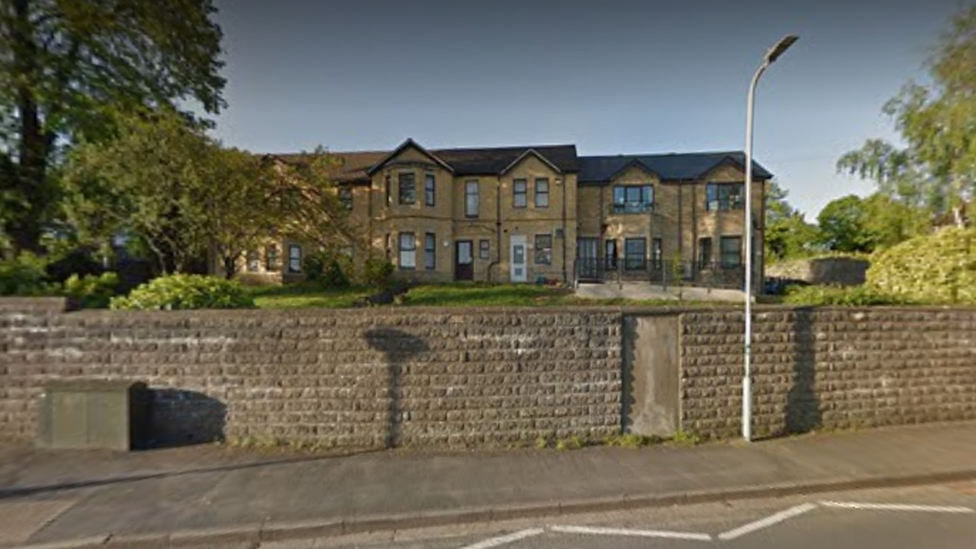
Recent tests showed Claremont Court Care Home in Newport was Covid-free, despite some residents being ill early in the outbreak
Testing in care homes has risen sharply in recent weeks, according to latest figures from PHW.
More than 5,100 care workers in Wales were tested in the most recent week, while the number of residents tested had also more than doubled on the previous total.
By 24 May, more than 7,300 care home residents and more than 9,000 home staff had been tested.
Only 13% of the tests of residents and 11% of care workers have proved positive.
One of the biggest fears for care homes was the threat of the disease arriving from hospitals.
Some homes have told BBC Wales News they felt under pressure in March to take patients leaving hospitals. Ms Herklots said she had heard the same complaints.
In April, the policy changed so that all patients leaving hospital had to test negative before returning to a care home.
But implementing that could require further changes.
Cardiff and the Vale of Glamorgan councils, for example, are looking for a Covid-free home where people can stay after they leave hospital.
They say it will provide a "safe place for vulnerable people who are required to quarantine following a period in hospital, and cannot do this safely in their usual residence".
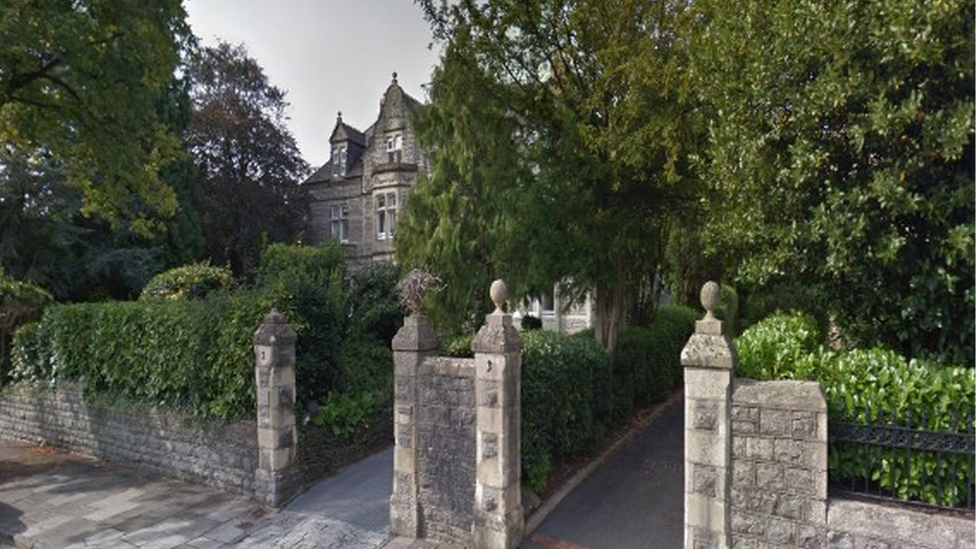
Parkside House Residential Home in Penarth says it has kept the virus at bay
People will stay there for 14 days and would need a second negative test before leaving.
But some say care homes will need more help to comply with guidance on isolating residents who are confirmed or suspected to have coronavirus.
Justin Otto-Jones, who runs Parkside House Residential Home in Penarth, credits the "fantastic effort of staff" for keeping the virus at bay.
But if it strikes, there should be a step-up site - somewhere sick residents can go to separate them from the rest of the home, he said.
"We are particularly concerned about the challenges presented by the possible need to isolate residents who are mobile and suffering from severe dementia and in order to safeguard them, all other residents and staff we feel strongly that there should be an outside facility in place for use in cases where it is not practicable to do this in a care home."
The Welsh Government said it had tried to support social care providers from the start, but Mr Joshi said there still was not enough consultation.
For example, he says they have not received guidance on what to do if their staff are told to isolate through the new track or trace system.
He also said some homes experienced delays in obtaining their share of £40m in emergency funding pledged by the Welsh Government.
'Swift action'
Ministers are expected to announce more funding soon.
They also said the guidance on the management of asymptomatic care home staff, who care for people with Covid-19, was being finalised.
"We are continuing to learn more about coronavirus with every passing week," a government spokesman said.
"Throughout the pandemic, we have been clear about the importance of being guided by the latest scientific and medical advice.
"As soon as the scientific advice changed to say there was a benefit to widespread testing in care homes, we took swift action."
But in future, policies should not be guided by science alone, said Ms Herklots.
She wants to hear from care home residents and their staff "because we haven't heard enough from them I think over the last two months".
Many homes, including Claremont House, locked their doors early to protect vulnerable residents.
Restrictions on daily life are slowly being lifted outside, but care homes have no idea when they will be able to get back to normal, says Ms Mowat.
"I don't know that we will be fully welcoming relatives to the home for the rest of the year, to be honest."
- Published27 September 2020

- Published16 May 2020
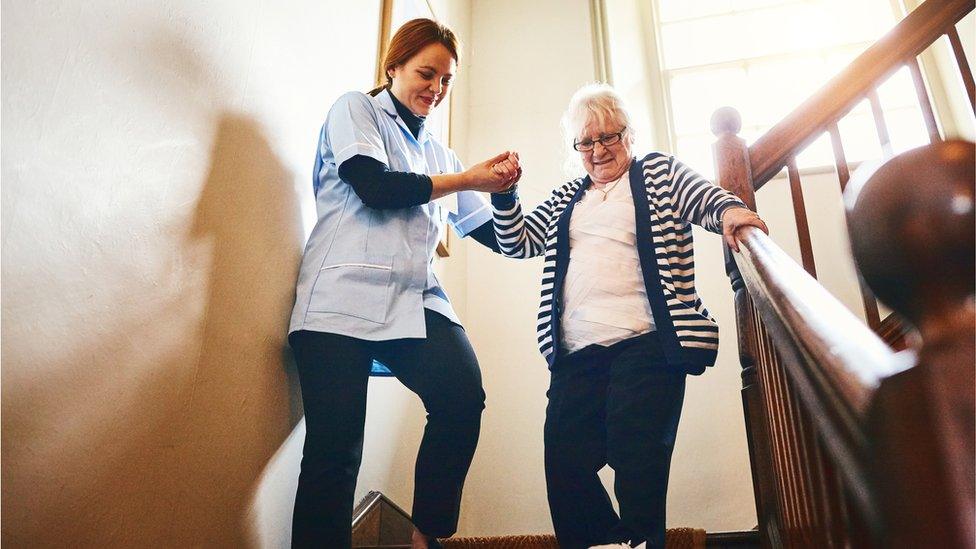
- Published3 May 2020
